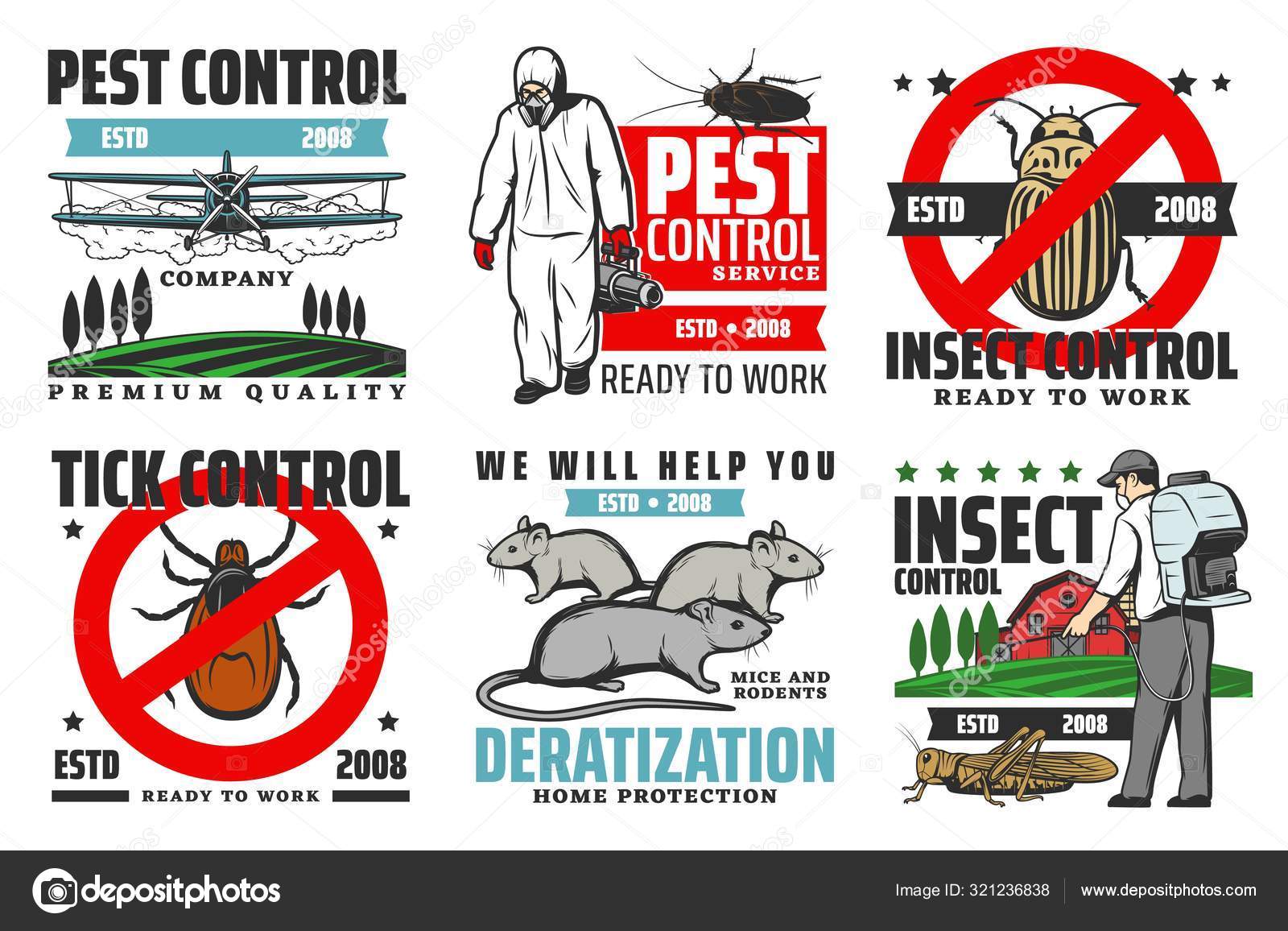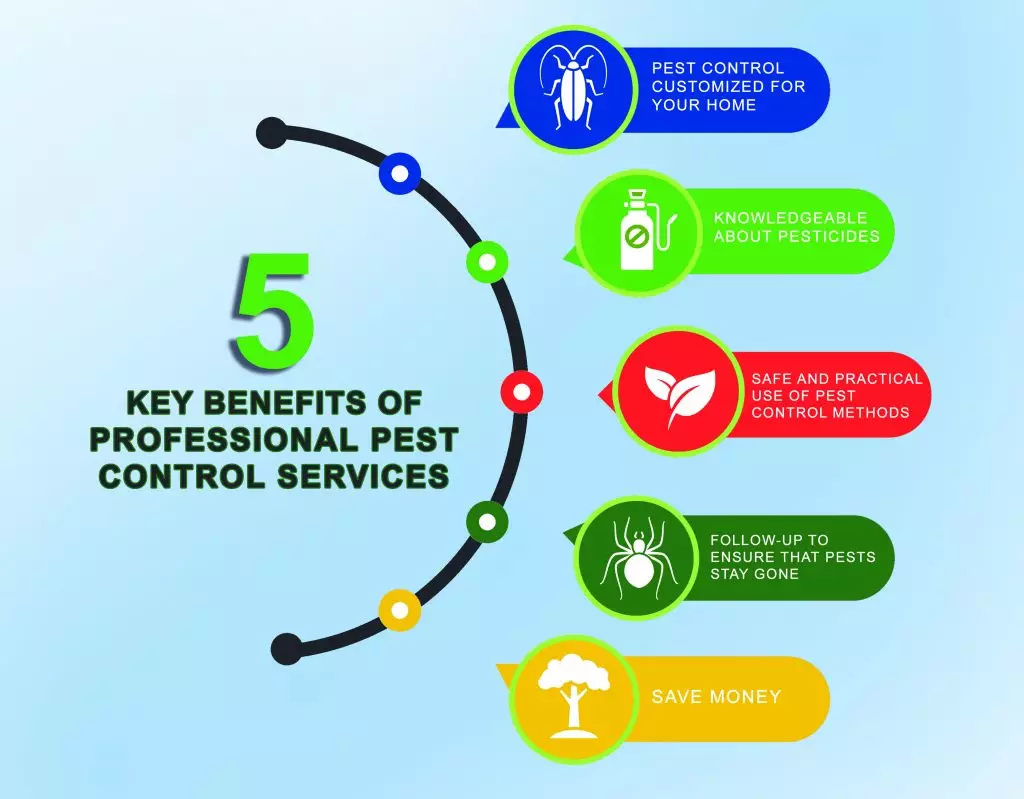Recognizing the Different Approaches to Pest Control: A Comprehensive Guide

All-natural Bug Control Techniques
Utilizing environment-friendly strategies such as buddy planting and biological bug control is necessary for properly taking care of insects in agricultural settings. Buddy growing entails growing various crops in distance to hinder pests, improve nutrient uptake, and boost general crop health.
Biological parasite control includes presenting all-natural killers or virus to regulate pest populaces. Ladybugs, as an example, feed on aphids, regulating their numbers without the demand for chemical pesticides. One more instance is making use of Bacillus thuringiensis (Bt), a germs that targets certain insect parasites while being safe to humans, pets, and advantageous pests.
These eco-friendly methods not only decrease the reliance on synthetic pesticides however likewise aid protect biodiversity and dirt health and wellness. By incorporating natural pest control strategies into agricultural techniques, farmers can achieve sustainable pest monitoring while minimizing adverse influence on the atmosphere.

Chemical Bug Control Solutions
Along with natural bug control techniques, the utilization of chemical insect control solutions plays a substantial function in properly taking care of pest populaces in agricultural atmospheres. Chemical bug control solutions are created to target specific parasites that might cause comprehensive damage to crops. These remedies usually contain artificial pesticides that are made to remove bugs quickly and successfully.
One of the vital benefits of chemical insect control options is their performance in managing pest problems on a huge range. Farmers can apply these options utilizing various approaches such as splashing, airing out, or seed treatment to protect their crops from damaging insects, weeds, and diseases. Furthermore, chemical bug control services are reasonably very easy to use and can offer fast results, assisting farmers safeguard their yields and reduce economic losses.
However, it is important to make use of chemical pest control services judiciously to lessen potential negative effect on the setting, non-target microorganisms, and human health. Proper application methods, adherence to security standards, and routine monitoring are important to make certain the responsible usage of chemical parasite control options in agricultural practices.
Organic Insect Control Approaches
Biological pest control comes close to leverage natural predators or pathogens to handle bug populaces in agricultural settings efficiently. One common biological control approach is the introduction of natural adversaries, such as ladybugs or parasitic wasps, to target specific parasites.
An additional biological control technique involves making use of pathogens like fungis, viruses, or bacteria to infect and kill insects. These microbial representatives can be sprayed on crops or introduced right into the dirt to fight numerous pests without hurting useful insects or other wild animals. Additionally, the use of scents to interrupt the mating patterns of pests is one more reliable organic control technique. By conflicting with their reproduction, this technique helps to decrease bug populations without the need for chemical treatment. Generally, biological parasite control strategies provide a lasting and targeted solution to pest management in agriculture.
Integrated Parasite Management (IPM)
Integrated Pest Management (IPM) is a thorough method that combines different bug control techniques to effectively manage and reduce pest populations in farming systems. IPM focuses on lasting prevention of pests with a mix of biological, social, physical, and chemical control techniques. By incorporating these various strategies, IPM intends to lower dependence on chemical Click This Link pesticides, minimize environmental effect, and promote lasting bug administration techniques.
One secret aspect of IPM is making use of biological controls such as all-natural predators, parasites, and microorganisms to control insect populaces. This method utilizes the power of nature to preserve a balance between like this insects and their natural enemies without creating harm to the atmosphere.
In addition, IPM entails social techniques like plant habitat, cleanliness, and turning manipulation to produce undesirable conditions for bugs and interrupt their life cycles. Physical controls such as barriers, traps, and mulches are additionally made use of to avoid pest infestations.
Mechanical and Physical Pest Control Methods
Using non-chemical approaches, such as physical and mechanical parasite control methods, is a crucial facet of detailed bug management techniques, building upon the structure of Integrated Bug Monitoring's holistic technique. Mechanical parasite control involves making use of physical barriers or catches to stop pests from accessing and damaging crops or frameworks. This method can include strategies like setting up screens on home windows, utilizing row covers in farming, or employing sticky traps to capture insects.
Physical pest control approaches, on the other hand, concentrate on directly eliminating insects through physical means. Using warmth therapies to eliminate bed bugs or vacuuming up bugs like ants or crawlers can be reliable ways to manage invasions without the use of chemicals. By integrating these physical and mechanical bug control methods right into an Integrated Pest Management strategy, people and professionals can decrease dependence on chemicals while still successfully taking care of pest populaces and decreasing damages.
Conclusion

In enhancement to all-natural insect control approaches, the usage of chemical pest control services plays a significant role in efficiently handling pest populations in farming settings.One of the essential advantages of chemical insect control options is their performance in regulating parasite problems on a huge scale.Integrated Bug Administration (IPM) is a detailed method that combines different parasite control strategies to properly manage and minimize pest populations in agricultural systems.Using non-chemical approaches, such as mechanical and physical informative post insect control techniques, is a crucial element of thorough bug administration techniques, building upon the structure of Integrated Pest Administration's alternative approach. By integrating these mechanical and physical parasite control techniques into an Integrated Pest Monitoring strategy, people and experts can reduce reliance on chemicals while still effectively reducing and taking care of pest populations damage.